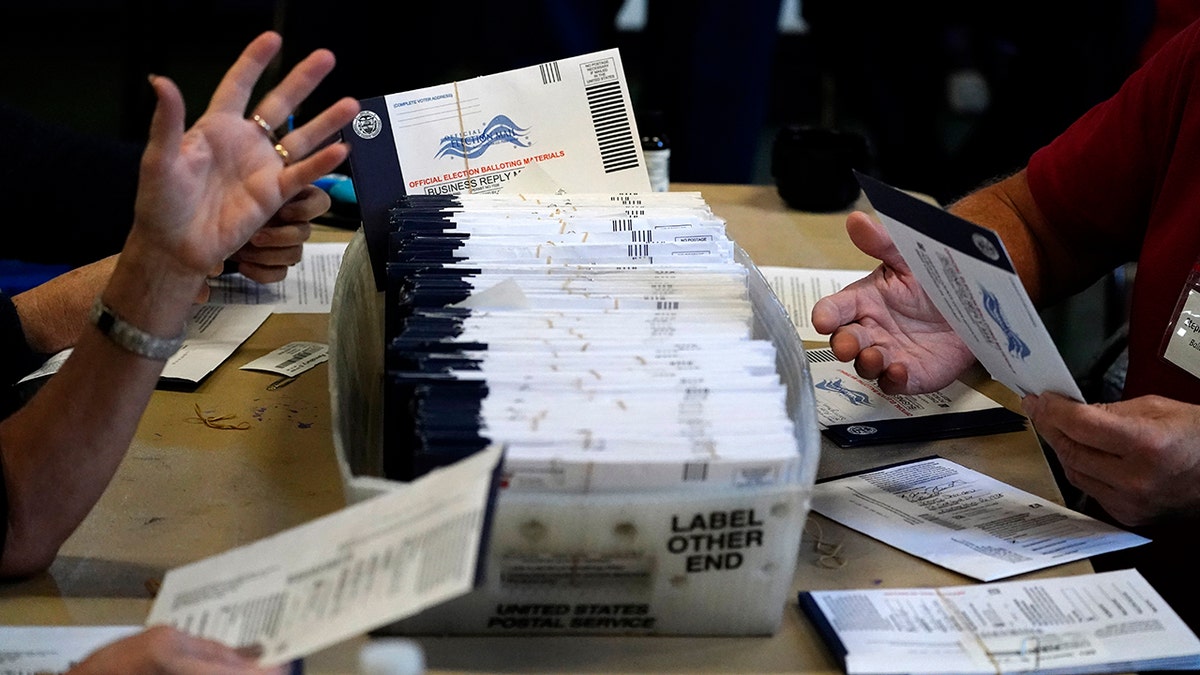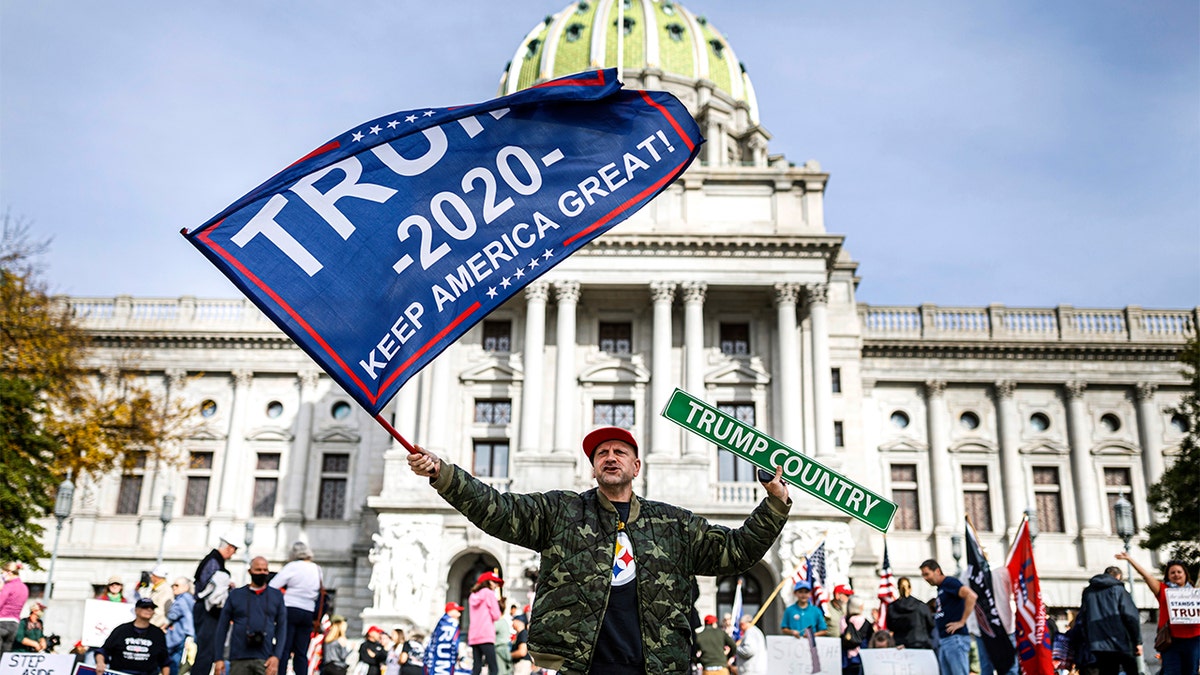Courts reject Trump campaign lawsuits to block Pennsylvania mail-in ballots
Trump team continues legal fight, as Pennsylvania’s secretary of state announces there will be no automatic recount; Bryan Llenas reports.
A Pennsylvania federal appeals court rejected the Trump campaign's attempts to block more than 9,000 absentee ballots that arrived after Election Day.
The Supreme Court in October ruled the state could extend its deadline to receive mail-in ballots by up to three days after Election Day, as long as they were postmarked on or before Nov. 3.
Three judges rejected a string of the campaign's lawsuits, which tried to block a total of 9,300 mail-in ballots Friday. They noted the "vast disruption" and "unprecedented challenges" facing the nation during the COVID-19 pandemic as they upheld the extension.

Chester County election workers process mail-in and absentee ballots for the 2020 general election in the United States at West Chester University, Wednesday, Nov. 4, 2020. (AP Photo/Matt Slocum)
Chief U.S. Circuit Judge D. Brooks Smith said the panel kept in mind "a proposition indisputable in our democratic process: that the lawfully cast vote of every citizen must count."
TRUMP'S PENNSYLVANIA LAW FIRM PULLS OUT OF CAMPAIGN CASE AFTER ONLINE THREATS
Republicans also asked the U.S. Supreme Court to review the issue. However, there are not enough late-arriving ballots to change the results in Pennsylvania, given President-elect Joe Biden’s lead. The Democratic former vice president won the state by about 60,000 votes out of about 6.8 million cast.
The Trump campaign or Republican surrogates have filed more than 15 legal challenges in Pennsylvania as they seek to reclaim the state’s 20 electoral votes, but have so far offered no evidence of any widespread voter fraud.

A man waves a flag at a pro-Trump rally at the Pennsylvania state Capitol in Harrisburg, Pa., Nov. 5. (Dan Gleiter/The Patriot-News via AP)
Of the 9,300 total ballots the Trump campaign sought to block, 8,329 with defects on outer mailing envelopes still could be accepted, Pennsylvania Judge James Crumlish ruled on Friday. Judge Richard Haaz also ruled Friday that 592 ballots with missing information, such as hand-printed names and addresses, could be accepted.
A Pennsylvania Commonwealth Court judge, however, ruled in favor of the Trump campaign and against Pennsylvania Secretary of State Kathy Boockvar on Thursday. Boockvar did not have legal authority to change the voting deadline on Election Day to Nov. 12 - six days after the state's absentee ballot deadlne - for those who did not provide proof of identification to vote.
“[T]he Court concludes that [Boockvar] ... lacked statutory authority to issue the November 1, 2020, guidance to Respondents County Boards of Elections insofar as that guidance purported to change the deadline … for certain electors to verify proof of identification,” Judge Mary Hannah Leavitt said in a court order.
CLICK HERE TO GET THE FOX NEWS APP
The Associated Press contributed to this report.













































